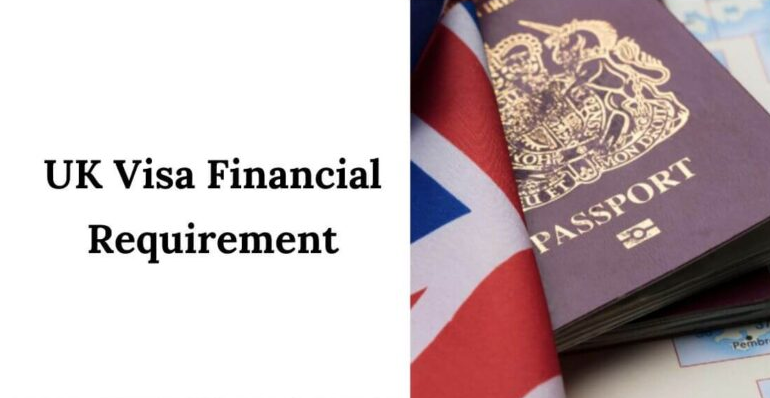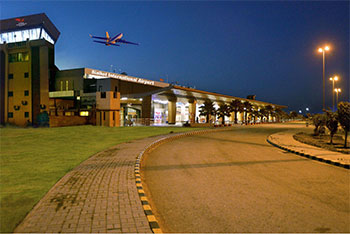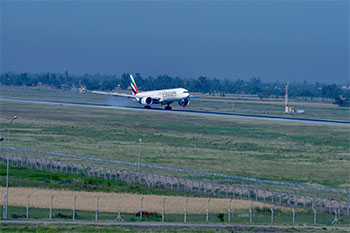
The United Kingdom remains a premier global destination for individuals seeking opportunities in work, education, and tourism. However, securing a UK visa hinges significantly on demonstrating robust financial capability. With new regulations and updated financial thresholds coming into effect from May 2025, it is more crucial than ever for applicants to understand and meticulously prepare for the UK visa financial requirements. This comprehensive article delves into the specific financial criteria for work, study, and visit purposes, offering detailed insights and practical advice to ensure a successful UK visa application.
I. Introduction: The Evolving Landscape of UK Visa Financial Requirements
The UK government, in its continuous effort to refine its immigration policies, has introduced significant adjustments to the financial requirements across various visa categories effective May 2025. These changes aim to ensure that all applicants can adequately support themselves and their dependents without recourse to public funds during their stay in the UK. This means higher living costs estimates for students, increased salary benchmarks for skilled workers, and enhanced scrutiny of financial documents for visitors. Understanding these new rules and preparing your proof of funds accordingly is paramount to avoid delays or refusal of your UK visa.
The emphasis is now more strongly on demonstrating sufficient funds and a stable financial history, whether it's for maintenance funds during studies, meeting the minimum salary threshold for work, or covering all daily expenses for a tourist visit. This guide will meticulously break down these financial requirements, providing essential information and guidance for each visa type.
II. Skilled Worker Visa Financial Requirements: Building a Career in the UK
For those aspiring to build a career in the UK, the Skilled Worker visa is a primary route. This visa category has seen some of the most significant changes in terms of financial criteria, particularly concerning the minimum salary threshold.
A. Meeting the Minimum Salary Threshold for Skilled Worker Visa
As of May 2025, the minimum annual salary for most Skilled Worker visa applicants has substantially increased. This is a critical financial requirement that dictates eligibility.
- Standard Applicants: The minimum annual salary for most standard Skilled Worker visa applicants is now £38,700. This figure represents a notable increase from previous thresholds and underscores the UK's focus on attracting high-earning professionals.
- Specific Categories with Lower Thresholds: While £38,700 is the general rule, certain categories may qualify for a lower minimum salary:
- New Graduates/Trainees/Age < 26: Applicants in these categories may have a lower minimum annual salary requirement of £30,960. This concession aims to support early-career professionals entering the UK workforce.
- PhD Holders (STEM): Individuals with a PhD in a STEM (Science, Technology, Engineering, Mathematics) subject also benefit from a reduced minimum salary of £30,960. This highlights the UK's demand for expertise in these critical sectors.
- PhD Holders (Non-STEM): For non-STEM PhD holders, the minimum annual salary is set at £34,830.
- Jobs on the Immigration Salary List: Occupations listed on the Immigration Salary List (formerly the Shortage Occupation List) may also have a reduced minimum salary of £30,960. This list is designed to address specific labor shortages in the UK economy.
- "Going Rate" Consideration: It's crucial to note that the minimum salary requirement is whichever is higher between the specified threshold and the "going rate" for the specific occupation code of your job. Employers must ensure that the offered salary meets both the general threshold and the going rate for the particular role.
B. Additional Financial Criteria for Skilled Worker Visa
Beyond the minimum salary, applicants for the Skilled Worker visa must also satisfy other financial requirements:
- Sponsorship by a UK Home Office-approved employer: A fundamental requirement is having a job offer from a UK Home Office-approved employer who holds a valid sponsor licence. Your employer will provide you with a Certificate of Sponsorship (CoS), an electronic record essential for your visa application.
- Maintenance Funds: While the primary focus is on the salary, applicants must also demonstrate maintenance funds to support themselves upon arrival until their first salary payment. The standard maintenance funds requirement for a Skilled Worker visa is typically £1,270 held in your bank account for at least 28 consecutive days before applying. However, if your employer certifies on your Certificate of Sponsorship that they will cover your maintenance funds for the first month, you may not need to show these personal funds.
- Immigration Health Surcharge (IHS): All applicants for the Skilled Worker visa (and most other long-term visas) are required to pay the Immigration Health Surcharge (IHS). This fee grants access to the UK's National Health Service (NHS). As of April 2024, the standard fee is £1,035 per year. This amount must be paid upfront for the entire duration of your visa.
- Visa Application Fees: The Skilled Worker visa application fees have also increased. The fee varies based on the duration of your visa (up to 3 years or over 3 years) and whether your job is on the Immigration Salary List. For example, a Skilled Worker visa for 3 years or less is now £769, and over 3 years is £1,519. These visa application fees are non-refundable.
C. Proof of Funds for Skilled Worker Visa
Demonstrating proof of funds is vital. Acceptable financial evidence includes:
- Bank Statements: Original bank statements showing the required maintenance funds (if not sponsored by employer) held for a consecutive 28-day period. The statement must be recent, typically no older than 31 days from the date of your visa application.
- Letter from Bank: A letter from your bank confirming the available balance and the 28-day holding period can also be accepted.
- Certificate of Sponsorship (CoS): The CoS is crucial evidence of your job offer and sponsorship. If your employer is covering your maintenance funds, this will be noted on the CoS.
- Payslips/Employment Contract: While not direct proof of funds for maintenance, these documents are essential to corroborate your declared salary and job offer, which are central to the Skilled Worker visa financial criteria.
III. Student Visa Financial Requirements: Pursuing Education in the UK
The UK remains a highly sought-after destination for international students. To secure a UK Student visa, applicants must demonstrate that they have sufficient funds to cover both their tuition fees and their living expenses (also known as maintenance funds) for the duration of their studies. The cost of living UK visa requirements have been updated to reflect current economic realities.
A. Tuition Fees and Living Costs (Maintenance Funds)
The two primary components of financial requirements for a UK Student visa are:
Tuition Fees: You must show that you have enough money to cover the tuition fees for your first year of study, as stated in your Confirmation of Acceptance for Studies (CAS) letter. If you have already paid a deposit, that amount can be deducted from the total.
Living Costs (Maintenance Funds): These funds are to cover your daily expenses, accommodation, and other necessities. The required amounts vary significantly depending on whether you will be studying in London or outside London.
- For Courses in London: As of May 2025, students studying in London must show £1,483 per month for living costs. For a standard 9-month academic year, this totals £13,347.
- For Courses Outside London: For students studying outside London, the requirement is £1,136 per month. For a 9-month academic year, this totals £10,224.
B. Additional Financial Considerations for Student Visa
- Dependents: If you plan to bring family members (dependents) with you on a Student visa, you must demonstrate additional maintenance funds for each dependent. As of May 2025:
- London: £845 per month per dependent.
- Outside London: £680 per month per dependent.
- These funds are typically required for up to 9 months for each dependent.
- Immigration Health Surcharge (IHS): Similar to the Skilled Worker visa, Student visa applicants (for courses longer than 6 months) must pay the Immigration Health Surcharge (IHS). The fee for students is £776 per year. This provides access to the NHS.
- Visa Application Fees: The UK Student visa application fee is generally £490 when applying from outside the UK. There are additional fees for priority or super priority services if you need faster processing.
- Accommodation Deductions: If you have paid an accommodation deposit to your university or a university-arranged accommodation provider, you may be able to deduct a maximum of £1,483 from the total maintenance funds you need to show for your visa application. This is a maximum deduction, regardless of how much you paid.
C. Proof of Funds for Student Visa
Demonstrating sufficient funds for your UK Student visa is critical. The financial evidence must adhere to strict guidelines:
- Bank Statements: This is the most common form of proof of funds. Your bank statements must:
- Show the required amount of money (tuition fees + living costs + dependent funds, if applicable).
- Show that the funds have been held for a consecutive 28-day period. This 28-day period must end no more than 31 days before the date you submit your online visa application.
- Be official documents from a regulated financial institution, either stamped by the bank or an official electronic print-out.
- Include the account holder's name (your name, or your parent's/legal guardian's name if using their account), account number, bank's name, date of issue, and the available balance.
- If using a joint account, you must be named on the statement and have unrestricted access to the funds.
- Letter from Bank: A letter from your bank confirming the available balance and the 28-day holding period is also acceptable. It must be on official letterhead, stamped, and/or signed by an authorized official.
- Official Financial Sponsorship: If you are officially sponsored by a government, university, or other approved organization, a letter from your sponsor confirming the details of their financial support (amount, duration, what it covers) can serve as proof of funds. This means you may not need to provide personal bank statements.
- Student Loans: If you are using a student loan, the loan letter must confirm that the loan is from a government, government-sponsored loan company, or a regulated student loan scheme, and that the funds will be available to you before you travel or paid directly to the university.
- Using Parent's/Legal Guardian's Account: If the proof of funds comes from your parent's or legal guardian's account, you must provide:
- Their bank statements meeting the above criteria.
- A birth certificate or other legal document proving your relationship to them.
- A letter from your parent(s) or legal guardian(s) confirming their consent for you to use their funds for your studies in the UK.
- Currency Conversion: If your funds are in a foreign currency, you must convert the amount to pounds sterling using the official OANDA currency converter on the same day you submit your online visa application. It's advisable to have a slight buffer to account for currency fluctuations.
IV. Standard Visitor Visa Financial Requirements: Exploring the UK
For those planning a short trip to the UK for tourism, visiting family/friends, or short-term study (up to 6 months), the Standard Visitor visa is the appropriate route. Unlike work or study visas, there isn't a fixed, prescribed minimum bank balance for a UK Tourist visa. Instead, the focus is on demonstrating your ability to cover all anticipated expenses during your stay without working or relying on public funds.
A. Demonstrating Sufficient Funds for a Standard Visitor Visa
The primary financial criteria for a Standard Visitor visa revolve around proving you have sufficient funds for:
- Return or Onward Travel: The cost of your flights to and from the UK.
- Accommodation: Where you will stay during your visit (hotel bookings, confirmed arrangements with friends/family).
- Daily Expenses: Food, local transport, sightseeing, and other personal spending.
- Planned Activities: Any specific events, tours, or activities you intend to partake in that incur costs.
While there's no set amount, it's generally recommended to have a budget that comfortably covers your planned trip. For short stays (up to 6 months), a suggested range might be £1,500 to £2,500, but this is highly dependent on your itinerary and lifestyle. Longer stays or more expensive plans will naturally require more funds.
B. Key Aspects of Financial Proof for Visitor Visa
- Stable Financial Circumstances: The Home Office looks for evidence of stable financial circumstances in your home country. This means showing a consistent income and responsible management of your finances. Large, unexplained deposits just before your application might raise suspicion.
- Financial Ties to Home Country: It's beneficial to demonstrate strong financial ties to your home country, such as ongoing employment, property ownership, or family commitments. This helps reassure visa officers that you intend to return home after your visit.
- Sponsorship by a Third Party: If someone in the UK or your home country is sponsoring your visit and covering your expenses, they must provide:
- A letter of financial support detailing what they will cover (e.g., travel, accommodation, daily expenses).
- Proof of their own financial capability, such as their bank statements (typically 3-6 months), payslips, or evidence of income.
- Proof of their relationship to you.
- Crucially, the sponsor must also demonstrate that they have sufficient funds to support themselves and their dependents in addition to supporting you.
C. Acceptable Financial Evidence for Standard Visitor Visa
- Bank Statements: Provide bank statements covering at least the last three to six months. These statements should clearly show your name, account number, bank details, and consistent financial activity. The statements should be recent, ideally within the last month of your application.
- Payslips/Proof of Employment: If you are employed, recent payslips and a letter from your employer confirming your employment, salary, and leave dates can strengthen your application.
- Proof of Accommodation: Hotel bookings, Airbnb reservations, or a letter of invitation from a UK resident confirming they will provide accommodation.
- Travel Bookings: Evidence of return or onward travel tickets.
- Invitation Letters: If visiting friends or family, an invitation letter from them can be helpful.
D. Important Considerations for Visitor Visa Financials
- No Access to Public Funds or Work: A Standard Visitor visa explicitly prohibits working or accessing public funds. Your financial evidence must clearly demonstrate your ability to support yourself without engaging in these activities.
- Consistency: Ensure that your declared income and planned expenditure for the trip are consistent. Any discrepancies may lead to questions or refusal.
- Avoid Large, Recent Deposits: As mentioned, large, unexplained deposits just before your application may be viewed with suspicion.
- Professional Review: For complex cases or if you are unsure, seeking advice from an immigration solicitor to review your application and financial documents can significantly increase your chances of success.
V. General Requirements for All UK Visa Categories: Proof of Funds and Financial Evidence
Regardless of the specific UK visa type (work, study, or visit), certain overarching principles apply to proof of funds and financial evidence. Adhering to these guidelines is crucial for a smooth visa application process.
A. The "28-Day Rule" and "31-Day Rule"
These are critical rules for Student visa and Skilled Worker visa (for personal maintenance funds) applicants:
- 28-Day Rule: The funds you are relying on (for tuition fees, living costs, or maintenance funds) must have been held in your bank account for a consecutive 28-day period before the date of your visa application. The balance must not drop below the required amount at any point during these 28 days.
- 31-Day Rule: The closing balance of your bank statement (or the date of your bank letter) must not be older than 31 days at the time you submit your online visa application.
B. Acceptable Forms of Financial Evidence
- Bank Statements: These are the most common and preferred. They must be official, clear, and include:
- Account holder's name(s)
- Account number
- Bank's name and contact details
- Date of statement (must adhere to the 31-day rule)
- Transactions and a running balance showing the 28-day holding period.
- Can be printed or electronic, but not handwritten. Electronic statements do not necessarily need to be stamped by the bank.
- Letters from Bank/Building Society: An official letter on bank letterhead, signed and dated, confirming the available balance and the 28-day holding period.
- Building Society Passbooks: For certain types of accounts.
- Certificates of Deposit: If applicable.
- Official Sponsorship Letters: From governments, universities, or approved international organizations.
- Student Loan Letters: From government-backed or regulated loan schemes.
C. Unacceptable Forms of Financial Evidence
The following generally are not accepted as proof of funds:
- Credit card statements
- Overdraft facilities (unless it's an arranged overdraft that functions like an accessible cash balance)
- Shares or other investments that cannot be readily converted to cash
- Pension funds (unless accessible and clearly demonstrated)
- Property valuations
- Funds held in accounts that are not in your name or an approved sponsor's name (e.g., a friend's account).
D. Currency Conversion
If your financial evidence is in a foreign currency, you must convert the amount to pounds sterling (GBP). The UKVI typically uses the official OANDA currency converter for this purpose. It is highly recommended to do your own conversion on the day you apply and consider having a buffer amount to account for any minor exchange rate fluctuations.
E. Importance of Genuineness and Consistency
The Home Office places a strong emphasis on the genuineness of your financial documents. Any attempt to mislead or provide false information will lead to immediate refusal and may result in a ban from applying for future UK visas. Ensure that all figures are accurate, consistent across all documents, and reflect your true financial circumstances. Discrepancies between bank statements, salary slips, and declared income can raise red flags.
VI. The Cost of Applying for a UK Visa: Beyond Maintenance Funds
Beyond the maintenance funds and salary requirements, applicants must also factor in the various costs associated with a UK visa application. These fees are non-refundable and contribute significantly to the overall expense.
A. Visa Application Fees
As noted in the specific sections, visa application fees have generally increased across all categories.
- Skilled Worker Visa: Ranges from approximately £769 to £1,519, depending on duration and job type.
- Student Visa: Approximately £490.
- Standard Visitor Visa: Typically £115 for a 6-month visa, with higher costs for longer-term multiple-entry options (e.g., 2, 5, or 10 years).
B. Immigration Health Surcharge (IHS)
The Immigration Health Surcharge (IHS) is a mandatory payment for most long-term visa applicants (those staying over 6 months). This fee provides access to the National Health Service (NHS).
- Current standard rate (as of April 2024): £1,035 per year.
- For students: £776 per year.
This fee must be paid upfront for the entire duration of your visa, which can amount to a substantial sum. For example, a 3-year Skilled Worker visa would require an IHS payment of over £3,000.
C. Biometrics and Other Charges
Applicants typically need to attend a visa application centre to provide biometric information (fingerprints and photograph). There may be additional service charges at these centers, including:
- Premium lounge services
- Document scanning assistance
- Walk-in appointments
- Courier services for passport return
D. English Language Proficiency Tests
For most work and study visas, demonstrating English language proficiency is a requirement. This usually involves taking an approved English language test (e.g., IELTS, PTE Academic) which incurs a separate fee.
E. Translation Costs
If any of your supporting documents are not in English or Welsh, you will need to provide certified translations, which will incur additional costs.
VII. Common Reasons for Financial Refusal and How to Avoid Them
Understanding the pitfalls related to financial requirements can significantly improve your chances of a successful UK visa application.
- Insufficient Funds: The most common reason for refusal. Ensure your bank statements clearly show the required amount of maintenance funds or salary for the entire specified period.
- Funds Not Held for 28 Days: Failing to meet the 28-day rule for maintenance funds is a frequent error. Even if the balance dips below the required amount for just one day, the application can be refused.
- Bank Statements Not Recent Enough: The 31-day rule is strictly enforced. Ensure your financial evidence is dated appropriately.
- Unclear or Unofficial Financial Documents: Submitting unclear, unverified, or unofficial bank statements (e.g., screenshots without official headers, handwritten notes) will lead to refusal.
- Unexplained Large Deposits: Large sums of money appearing in your account just before your application without a clear explanation can raise suspicion of "fund parking" and lead to refusal. All significant deposits should be justifiable.
- Discrepancies in Financial Information: Inconsistencies between different financial documents or between your declared income and spending patterns can lead to doubts about the genuineness of your application.
- Incorrect Currency Conversion: Not converting foreign currency correctly to GBP or using an unofficial exchange rate can result in the assessment that you have insufficient funds.
- Sponsor's Financial Instability: If you are relying on a sponsor, their inability to demonstrate sufficient funds to support both themselves and you will lead to refusal.
- Lack of Financial Ties to Home Country (Visitor Visa): For visitor visas, if you cannot convincingly demonstrate strong financial ties to your home country that indicate your intent to return, your application may be viewed as high-risk.
Tips to Avoid Financial Refusal:
- Plan Ahead: Start gathering your financial documents well in advance of your application date, especially to meet the 28-day rule.
- Double-Check Calculations: Meticulously calculate the total funds required based on your visa type, location, and dependents.
- Use Official Documents: Always provide original or officially verified copies of bank statements and other financial evidence.
- Explain Any Anomalies: If there are legitimate large deposits or unusual transactions, provide a clear, concise explanation with supporting documentation.
- Maintain Consistent Balances: For the 28 days, avoid letting your bank balance drop below the required minimum.
- Seek Professional Advice: Consider consulting an immigration expert or lawyer, especially for complex cases or if you are unsure about any financial requirements.
VIII. Conclusion: Preparing for a Successful UK Visa Application in May 2025 Onwards
The updated UK visa financial requirements from May 2025 underscore the government's commitment to ensuring that individuals entering the country are financially self-sufficient. Whether you are applying for a Skilled Worker visa, a Student visa, or a Standard Visitor visa, a thorough understanding of the specific financial criteria is non-negotiable. From meeting stringent minimum salary thresholds for workers to demonstrating comprehensive maintenance funds for students and providing ample resources for visitors, every detail matters.
By meticulously gathering your proof of funds, ensuring adherence to rules like the 28-day and 31-day regulations, factoring in all visa application fees and the Immigration Health Surcharge (IHS), and preparing robust financial evidence, you significantly enhance your chances of a successful outcome. Remember that genuineness and consistency in your financial documents are paramount. With careful planning and attention to these updated financial requirements, your journey to the UK can be a reality.
;More Travel News
-
 16-Oct-2025Photography Tips for Capturing Your Maldives Honeymoon
16-Oct-2025Photography Tips for Capturing Your Maldives Honeymoon -
 22-Jul-2022PIA Lowers Fares for International flights
22-Jul-2022PIA Lowers Fares for International flights -
 13-Mar-2025Developments for the 2025 Hajj Pilgrimage
13-Mar-2025Developments for the 2025 Hajj Pilgrimage -
 31-Aug-2025Criminals Exploit Umrah Packages: Authorities Tighten Security for Pilgrims
31-Aug-2025Criminals Exploit Umrah Packages: Authorities Tighten Security for Pilgrims -
 23-Apr-2022Saudi Arabia Announces Hajj Quota for Various Countries
23-Apr-2022Saudi Arabia Announces Hajj Quota for Various Countries -
 15-Dec-2021Travel Insurance Importance in Wake of Emerging Covid 19 Virus Variant Omicron
15-Dec-2021Travel Insurance Importance in Wake of Emerging Covid 19 Virus Variant Omicron -
 13-Feb-2020British High Commissioner Declared "Pakistan is Safe Country for Tourism"
13-Feb-2020British High Commissioner Declared "Pakistan is Safe Country for Tourism" -
 15-Dec-2022UAE Changes Visit Visa Extension Policy
15-Dec-2022UAE Changes Visit Visa Extension Policy -
 22-Jun-2020Dubai Government Announces Resumption of Tourism From July 7th
22-Jun-2020Dubai Government Announces Resumption of Tourism From July 7th -
 25-Mar-2020Noor-ul-Haq Qadri Reject all Rumors about Hajj 2020
25-Mar-2020Noor-ul-Haq Qadri Reject all Rumors about Hajj 2020 -
 30-Oct-2025How to Choose Between a Beach Villa & Overwater Villa in the Maldives
30-Oct-2025How to Choose Between a Beach Villa & Overwater Villa in the Maldives -
 02-Sep-2025Flights from Sialkot Resume as Airport Reopens Amid Punjab Floods
02-Sep-2025Flights from Sialkot Resume as Airport Reopens Amid Punjab Floods
